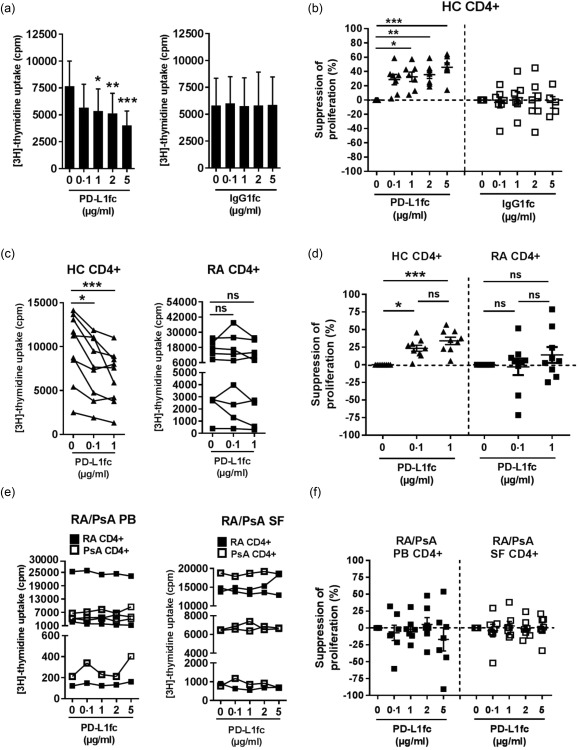Figure 2.

Programmed cell death‐1 (PD‐1) ligation reduces proliferation of CD4+ T cells from healthy donors but not CD4+ T cells from patients with rheumatoid arthritis (RA) or psoriatic arthritis (PsA). (a–f) CD4+ T cells were isolated from healthy control (HC) peripheral blood mononuclear cells (PBMC) and RA and PsA PBMC and synovial fluid mononuclear cells (SFMC) and cultured for 5 days in plates precoated with anti‐CD3 monoclonal antibody (mAb) (OKT3; 1·5 µg/ml) and PD‐L1fc/IgG1fc (0, 0·1, 1, 2 and 5 µg/ml). Proliferation was assessed on day 5 by [3H]‐thymidine incorporation. (a) HC CD4+ T cell proliferation (cpm) and (b) suppression of proliferation following PD‐1 ligation by PD‐L1fc (n = 7) or immunoglobulin (Ig)G1fc (n = 5–7). (c) Cell proliferation (cpm) and (d) suppression of proliferation of CD4+ T cells isolated from HC and RA PBMC (n = 9) in presence of PD‐L1fc. (e) Cell proliferation (cpm) and (f) suppression of proliferation of CD4+ T cells isolated from RA and PsA PBMC and paired SFMC in presence of PD‐L1fc (n = 3 RA PB/SF; n = 4 PsA PB/SF). Data were analysed by Friedman test with Dunn's multiple comparison test. *P < 0·05, **P < 0·01 and ***P < 0·001. Data in (b,d,f) show mean ± standard error of the mean.
